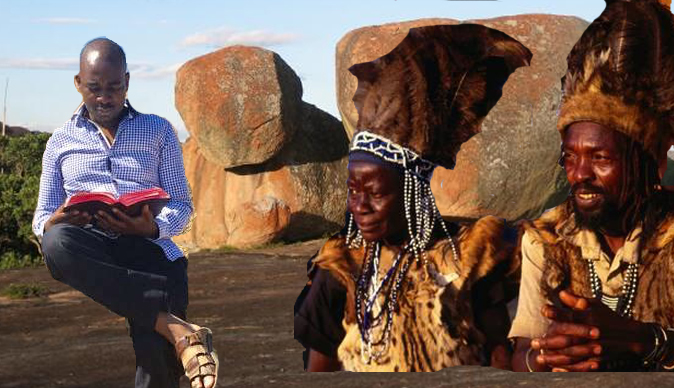We have sat an example for others; we have set 1000 people to show that we do not like the way the world is.
We didn’t commit suicide; we committed an act of revolutionary suicide, protesting the conditions of an inhumane world.”
This is a recording of the words of American cult leader, Jim Jones as multitudes lay before him - dying. He had managed to lead 912 (including 276 children) of his followers into a mass suicide by commanding them to drink a cyanide-adulterated punch – an order that the vast majority of them passively and inexplicably obeyed. The 1978 mass suicide came to be known as the Jonestown Massacre.
Jones was found with a gunshot wound to the head, probably self-inflicted.
How did he manage to convince close to 1000 people that ending their lives was in their best interest, one may ask. Quite simple indeed, the same way that MDC Alliance leader, Advocate Nelson Chamisa managed to convince his supporters that it was good for the country if they ran amok burning property on August 1 – claiming #GodIsInIt and in Chamisa’s case – inebriated by mega liters of beer.
How can mere mortals deny the word of God or a process that God is involved, to make matters worse – when intoxicated? Throughout his electoral campaign Chamisa made his supporters believe that there was only one outcome in the July 30 election – His victory. He even went to the extent of pledging his 18 year old sister to President-elect Emmerson Mnangagwa, giving the impression that the latter would not gunner even 5% of the vote.
The opposition leader also misled his supporters to believe that Zanu PF was responsible for the economic down turn facing the country, while behind the scenes he begged the United States of America to maintain sanctions on the country. Chamisa’s lieutenant and People’s Democratic Party leader, Tendai Biti is on record saying they had managed to ensure that the Zimbabwean Government does not receive any foreign funding.
Chamisa then declared that he would not accept any election result apart from a win. He told his supporters that they should be ready to die, to defend their purported vote. This concluded the indoctrination of MDC Alliance supporters. They had understood the message – if Chamisa loses, the election was rigged, and they would have to engage in violence to render the country ungovernable.
Surely, on August 1, after peaceful pre-election and election periods MDC Alliance supporters engaged in an unsanctioned violent demonstration. Like in the case of Jones’ followers, it was difficult to explain why MDC Alliance supporters engaged in violence – what exactly did they intended to achieve? That question is difficult to answer because it is the wrong question – inasmuch as we have to ask why Jones commanded his followers to drink a cyanide-adulterated punch, we have to ask what Chamisa intended to benefit by ordering his supporters to perpetrate such acts of violence. And the answer is the same – self-serving interests. Jones was facing arrest for the murder of U.S. Representative Leo Ryan and some journalists while Chamisa was facing election defeat.
Chamisa like Jones is willing to sacrifice the lives of innocent citizens to remain politically relevant. The MDC Alliance violence gave the US grounds to renew sanctions on Zimbabwe, in a bid to prolong the suffering of ordinary people so that the opposition remains relevant.
As the Constitutional Court is about to hear Chamisa’s challenge of the election result, the opposition leader is again psyching up his supporters for more violence. During a press conference recently Chamisa declared Zimbabweans were their own liberators, meaning if the court verdict is not in his favour then his supporters must take matters into their own hands.
The lesson that MDC Alliance supporters should draw from the Jonestown Massacre is that – it better to live for a cause than to die for it or nothing. Chamisa’s electoral loss is not the end of the world and his supporters should never be used as pawns by a mega-maniac who is drunk on his own self-importance.




